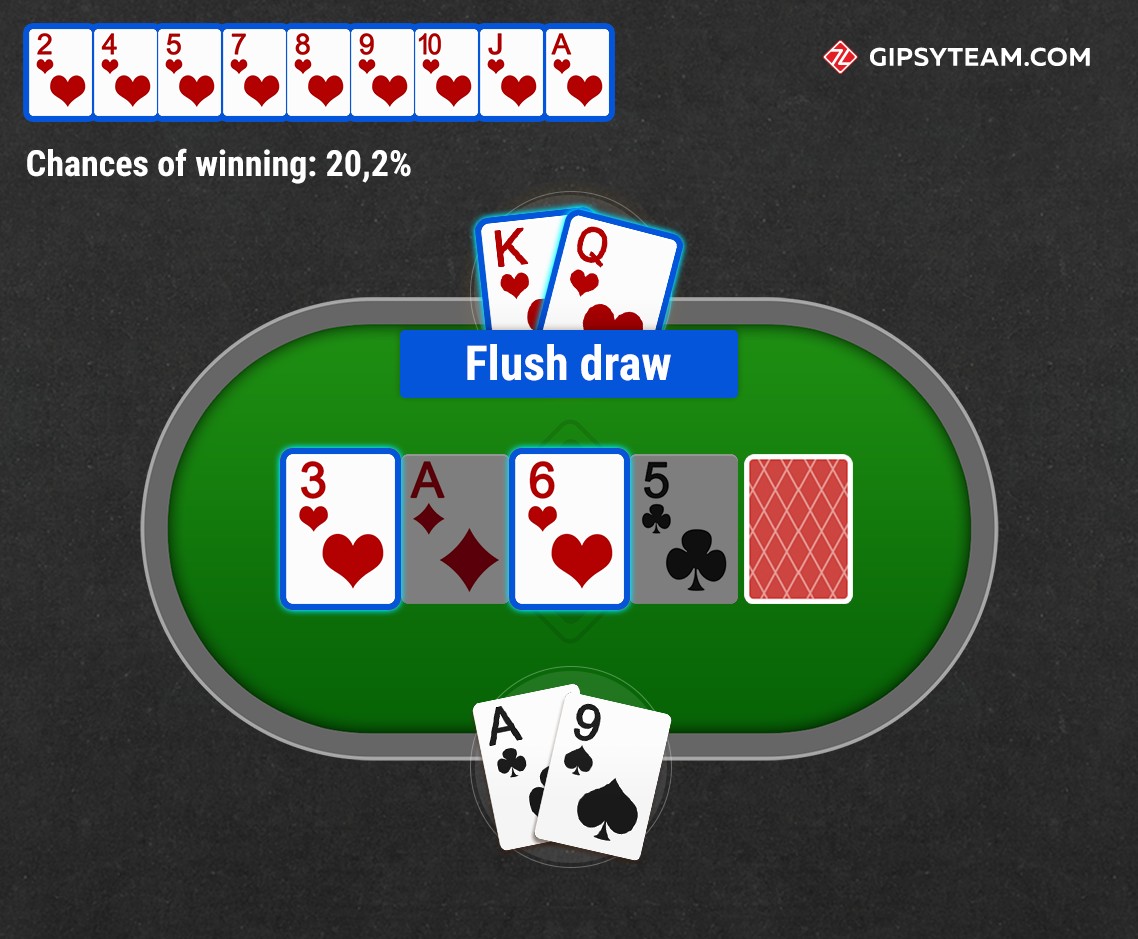It’s important to know the probability before making poker decisions. Odds calculators give poker players a way to see the chances of different scenarios.
Recreational players sometimes make choices based on feelings or guesses, but experienced players understand probability. The evolution of this great game is clear when you compare table footage from the early days to modern poker. The analysis and depth have progressed a lot. At the level poker has risen to, odds calculators and other poker tools are powerful weapons in a poker player's arsenal.
To stay competitive and understand your savvy opponents, you’ve got to know the odds of your hand. Let’s talk about how an odds calculator benefits poker players.

Why You Should Be Using A Poker Odds Calculator
An odds calculator will prepare you for the real probability of your actions at the poker table. The more you use calculators like FlopZilla, the more second nature it will become. You’ll memorize the chances of winning against specific holdings, hitting your draw, or flopping a strong hand.
Here are a few things poker odds calculators can help with:
- Training yourself for typical and unusual hypothetical situations
- Quickly reviewing mistakes and holes in your strategy
- Getting familiar with common hand matchups
- Understanding more about your bet sizing (and your opponent’s sizing too)
The way you apply poker odds changes depending on the format. Cash games and tournaments have different strategies because they have fundamental differences. In a cash game, there’s no time constraint or pressure. This means that you can generally apply what you learn about poker odds more objectively. The time structure of an MTT or sit & go causes players to act aggressively, which changes how we view equity.
Understanding Pot Odds And Equity
Every sport has lingo to learn and a mind sport like poker is no different. Pot odds and equity are terms you’ll hear a lot in poker content, so let’s discuss what they mean.
Pot odds are not your odds to win the pot; it’s a way to show reward vs risk. Poker players use pot odds to weigh the size of the pot against the cost of calling a bet. The better our pot odds are, the more incentive we have to make the call. It’s ideal to pay a small price to continue, with the chance to win a much larger pot.
Here’s a quick example:
You are playing hold ‘em against a single opponent, with exactly $100 in the pot. The other player makes a bet of $50 and the action is on you. To get the reward of $150, you’ve got to risk $50. The pot odds are 3-to-1, or 150-to-50.

You might hear a commentator say, “Daniel Negreanu is getting a great price to call” or ”he’s priced in.” That’s referring to pot odds; Daniel is getting a great ratio of reward vs risk.
Equity is the probability of winning a hand, displayed as a percentage. Experienced players compare their hand’s equity to their opponent's perceived hands, allowing them to build strategies. It’s always displayed during all-ins at major poker events, giving audience members an idea of the outcome. It’s useful for big decisions like that, but it’s not only important once all of the chips are in the middle. Your equity plays a role during every betting round.
You’ll hear poker players talk about how many “outs” they or their opponent has. Outs are cards that give us the winning hand. Knowing the cards we need relies on a strong understanding of hand combinations.
Count the cards that give you the best hand (your outs), then:
- On the flop, multiply the outs by four
- On the turn, multiply the outs by two
The number you get is your approximate hand equity as a percentage. A common example we can use is a flush draw. On the flop, a flush draw has nine outs. We multiply our nine outs by four to get 36% hand equity.
Your outs change depending on what your opponent has and what cards other players have folded. If you and your opponent both have flush draws, then your outs and equity might be reduced.

Using Pot Odds And Hand Equity To Help Your Decisions
Knowing how to calculate pot odds and equity are two separate skills, but they can also be used together to be more useful. Have you ever wondered if a call is reasonable or profitable? By comparing the pot odds to our hand equity, we can make better decisions throughout the hand.
Here’s an example of using pot odds and equity to make a choice: You’re sitting across from an opponent and playing Texas hold ‘em. There is $100 in the pot on the flop. Your opponent makes a small bet of $20, bringing the pot size to $120. Let’s calculate the pot odds first. $120-to-$20, giving us pot odds of 6-to-1.
All you need to do now is convert those pot odds to a percentage, which will be the equity you need to call this bet. Remember that once you make the call in our example, the pot will be $140. You will be calling $20 to win a pot of $140.
Here’s how to calculate the profitability of a call:
(Amount you must call ÷ the total pot size after the call = the minimum hand equity you should have to make the call)
Pot odds of 6-to-1 are equal to about 14% equity. That means that your hand equity must be 14% or higher to make this call justified and profitable.
Common Bet Sizes With Equity Needed To Make The Call
| Bet Size | Hand Equity Needed To Call |
|---|---|
| 10% of the pot | 9% |
| 25% of the pot | 16% |
| 50% of the pot | 25% |
| 75% of the pot | 30% |
| 100% of the pot | 33% |
| 150% of the pot | 37.5% |
Flopzilla Calculates Poker Odds And Equity
Flopzilla displays hand equity and adjusts for the flop, turn, and river cards. This app is one of the leading odds calculators for Texas hold ‘em, but it doesn’t have Omaha functionality. The all-in-one software has features to keep you competitive in today’s poker scene, online or offline.
You can play through hands from start to finish, noticing how your equity changes with new cards. By using Flopzilla, you’ll think in terms of hand ranges, not just specific hands.
We’ve reviewed the standard and pro versions of the Flopzilla software. If you want to download the app and try it for free for 7 days, check out our guide.
Poker Equity Calculators With No Download
888poker has a free equity calculator that you can use online without any download. You can input cards for you and up to 9 other players, then check the equities from pre-flop to river. If you need to quickly see how much equity hands have, this is a great option.













